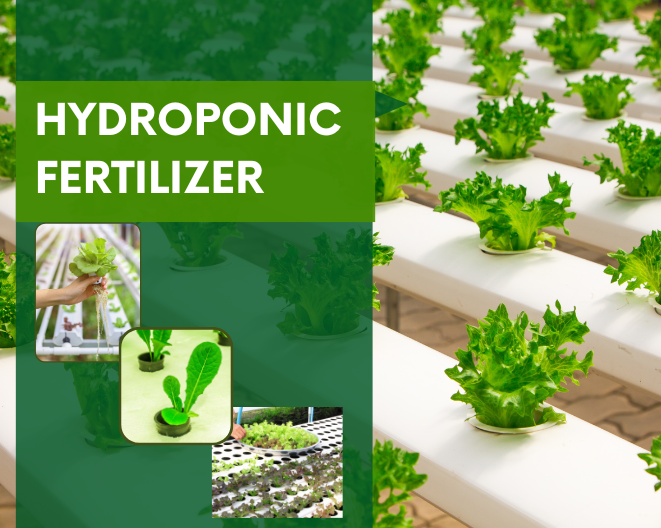Hydroponic farming has built up some forward movement as of late, offering a feasible and effective option in contrast to customary soil-based development. One of the critical parts of fruitful hydroponic frameworks is the utilization of specific fertilizers intended to give fundamental supplements to plants filled in water-based conditions. In this far-reaching guide, we’ll dive into the universe of hydroponic fertilizer, investigating its significance, parts, application techniques, and ways to enhance plant development in hydroponic arrangements. Whether you’re a carefully prepared hydroponic lover or an inquisitive novice, go along with us as we unwind the secrets of hydroponic fertilizer and open the key to flourishing hydroponic nurseries.
Figuring out Hydroponic Fertilizer: The Fundamentals
Hydroponic fertilizer generally called a supplement course of action, fills in as the fundamental wellspring of crucial enhancements for plants filled in hydroponic systems. Not the least bit like ordinary soil-based development, where plants get supplements from the soil, hydroponic plants rely upon a meticulously changed supplement reply to meet their dietary necessities. These courses of action consistently contain a precise blend of central macronutrients (like nitrogen, phosphorus, and potassium) and micronutrients (like calcium, magnesium, and iron) expected for strong plant advancement and improvement.
Components of Hydroponic Fertilizer
Hydroponic fertilizers are figured out to establish the fundamental supplements they need to flourish in soil-less conditions. These fertilizers ordinarily contain a painstakingly adjusted mix of full-scale and micronutrients, as well as different added substances to help plant development. Here are the essential parts normally tracked down in hydroponic fertilizers:
Macronutrients
These are the essential supplements that plants expect in generally huge amounts for solid development. They include:
- Nitrogen (N): Fundamental for advancing verdant green development and by and large plant energy.
- Phosphorus (P): Essential for root improvement, blossoming, and fruiting.
- Potassium (K): Helps in illness opposition, water guidelines, and in general plant wellbeing.
Micronutrients
Otherwise called minor components, micronutrients are expected in more modest amounts however are similarly fundamental for plant development. They include:
- Calcium (Ca): Significant for cell wall construction and generally speaking plant strength.
- Magnesium (Mg): Fundamental for chlorophyll creation and photosynthesis.
- Iron (Fe): Vital for chlorophyll union and chemical actuation.
- Zinc (Zn), Copper (Cu), Manganese (Mn), Boron (B), Molybdenum (Mo), and others: Assume different parts in compound capability, supplement take-up, and generally speaking plant digestion.
pH Cradles
Hydroponic fertilizer might contain pH supports to assist with keeping up with the ideal pH level of the supplement arrangement. This guarantees that supplements remain promptly accessible for plant take-up and forestalls pH changes that can obstruct supplement retention.
Enhancements and Added substances
A few hydroponic fertilizers might incorporate extra enhancements or added substances to upgrade plant development. These fertilizers work on supplement retention or address explicit inadequacies. Models incorporate amino acids, nutrients, kelp extricates, and gainful microorganisms.
By furnishing plants with a fair and thorough exhibit of supplements, hydroponic fertilizer supports solid development, powerful turn of events, and bountiful yields in soil-less development frameworks.
Application Techniques: Best Practices for Hydroponic Preparation
Appropriate use of hydroponic fertilizer is fundamental for augmenting plant development and forestalling supplement lacks or poison levels. Here are a few prescribed procedures to consider while treating hydroponic harvests:
- Weakening and Blending: Adhere to the maker’s guidelines cautiously while getting ready for supplement arrangements, guaranteeing exact weakening and blending to accomplish the ideal supplement focus.
- pH Checking: Routinely screen the pH level of the supplement arrangement utilizing a pH meter or test pack. The ideal pH range for hydroponic frameworks ordinarily falls somewhere in the range of 5.5 and 6.5, contingent upon the plant species.
- Taking care of Timetable: Lay out a predictable taking care of timetable in view of the development phase of your plants and their supplement prerequisites. Change supplement focuses on a case-by-case basis to oblige changes in plant development and natural circumstances.
- Root Zone Application: Straightforwardly apply the supplement answer for the root zone of plants utilizing a dribble water system, supplement film strategy (NFT), or other hydroponic techniques to guarantee productive supplement take-up and limit squander.
Tips and Deceives for Upgrading Hydroponic Fertilizer Use
To augment the viability of hydroponic preparation and advance solid plant development, think about the accompanying tips and deceives:
- Begin with Quality Water: Utilize refined or sifted water liberated from toxins and chlorine, as these can slow down supplement take-up and hurt plant wellbeing.
- Screen Supplement Levels: Routinely test the supplement levels in your hydroponic arrangement utilizing a conductivity meter or supplement checking framework to guarantee that plants get satisfactory sustenance without over-burdening them with overabundance supplements.
- Think about Plant Species: Various plants have differing supplement necessities, so tailor your supplement arrangement definition and take care of the timetable to meet the particular requirements of your harvests.
- Keep up with Framework Neatness: Keep your hydroponic framework perfect and liberated from garbage, green growth, and microbes that can disturb supplement take-up and advance sickness.
- Pivot Supplement Arrangements: Occasionally flush and supplant the supplement arrangement in your hydroponic framework to forestall supplement uneven characters and salt development, which can upset plant development and lead to supplement lacks.
Conclusion: Sustaining Solid Hydroponic Nurseries with Fertilizer Ability
All in all, hydroponic fertilizer is essential in supporting solid and flourishing plants in hydroponic gardens. By grasping the fundamentals of hydroponic treatment, choosing the right supplement arrangements, and carrying out prescribed procedures for application and advancement, groundskeepers can open the maximum capacity of their hydroponic arrangements and appreciate plentiful harvests of supplement-rich produce. Whether you’re developing spices, vegetables, or blossoms, hydroponic preparation is the way to outcome in the realm of soil-less cultivating. In this way, stir up a clump of supplement arrangements, and watch your hydroponic nursery thrive with readily available fertilizer.
FAQs
What is the best fertilizer to use in hydroponics?
The best fertilizer for hydroponics is one that is specifically formulated for soil-less cultivation. It provides a balanced blend of essential nutrients in a form that is readily available to plants. Look for hydroponic fertilizers that contain the necessary macro and micronutrients, and pH buffers to maintain optimal nutrient uptake.
What is hydroponic fertilizer?
Hydroponic fertilizer is a specially formulated blend of essential nutrients designed to nourish plants grown in hydroponic systems. Unlike traditional fertilizers, hydroponic fertilizers are water-soluble and provide nutrients directly to the roots of plants suspended in nutrient-rich solutions.
How to make hydroponic fertilizer?
While it’s possible to create homemade fertilizer blends, the precise balance of nutrients for optimal plant growth can be challenging. It’s more practical to use commercially available hydroponic fertilizers, which are carefully formulated to meet specific nutritional needs.
Can I use regular fertilizer for hydroponics?
While it is technically possible to use traditional, soil-based fertilizers in hydroponic systems, it is generally not recommended. Using specialized hydroponic fertilizers ensures that plants receive the precise nutrients they need for healthy growth and maximum yields.





